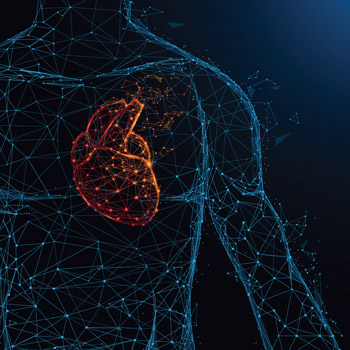Prevention as a prescription for cancer
Lifestyle modification and integrative approaches as interventions for aging well are simple and straightforward, yet these changes can be difficult to implement and sustain.
We are aging, individually and as a population. The silver tsunami is coming, and it is us. As we think about the seismic impact of this demographic shift on health, health care, and health practice, prevention may once again be the remedy that delays illness and improves quality of life.
As an oncologist, I have long been interested in quality of life, symptom management, and helping patients stay well as they go through treatment. I was also fortunate enough to train at the Arizona Cancer Center, where cancer prevention was a research focus—prevention and early detection to help patients and communities stay well. What a concept, not waiting for illness to hit.
Cancer incidence increases with age. Our cells become less effective at self-repair. Increased inflammation, metabolic disturbances, and chronic illnesses create an environment that is ripe for malignant transformation.
For an oncologist, “cure” may be a word rarely spoken, yet feeling better seemed generally plausible, not always attributable to allopathic remedies, and not directly related to tumor regression. Some patients seemed to live well with the cancer alongside. I learned that patients gained benefit from other systems of healing, such as acupuncture, Chinese medicine, and Ayurvedic practices, to name some examples. I witnessed the benefits of mind-body approaches on pain and stress.
I was prompted to learn more. I completed an integrative medicine fellowship at the University of Arizona in 2015, and since that time I have begun to practice integrative oncology and help patients implement lifestyle changes that uniformly have significantly enhanced their sense of well-being. It is the most rewarding experience to see patients, from diagnosis to palliation, feel better and see how the improved sense of self that emerges reinforces new lifestyle habits.
In thinking about aging and cancer, I thought about lifestyle modification and integrative approaches as interventions for aging well.
The approaches are simple, straightforward, yet we all know how difficult lifestyle changes can be to implement and sustain. This type of clinical work prompts self-change. Our attempts as clinicians to live what we recommend helps us counsel our patients more effectively and encourages our patients to sustain change.
What lifestyle changes are important? First, of course, no smoking. Consider alcohol intake as it is now a more recognized cancer risk factor.
I remember starting to talk with patients more substantively about lifestyle, and saying, “Our mothers were right; health means eating well, sleeping well, and finding joy.”
Eat well, primarily a plant-based diet, cruciferous vegetables, whole grains. Food can be an anti-inflammatory intervention. A large portion of the body is dedicated simply to the processing of food. We are learning more about the importance of our microbiome, its importance in health and illness, and how we can modify it to help our health. Avoid overeating. Avoid processed foods and sugar. The data on periodic fasting and caloric limitation are emerging and worth following.
Sleep well; most recommend at least seven hours nightly. In medicine, we are used to short-changing sleep. Yet, everything works better when we're rested. Our bodies need the time to recuperate. Memory requires sleep to process well. Our immune system functions better with rest. Helping patients sleep better often impacts mood, pain, blood pressure, blood sugar, and stress. Sleep alone is an effective anti-cancer, anti-aging, wellness intervention.
And find joy! This can come in so many flavors. First, find ways to de-stress. Mind-body approaches that relax the mind and body can feel like a vacation. Learning to manage stress and to prevent chronic stress reactions decreases inflammation. Creating this habit of mind to pause before reacting, to breathe deeply and exhale fully, can shift one's perception of life.
Moving the body, strengthening the body, can bring a sense of well-being, can improve metabolism, and can support the immune system. This can be thirty minutes of walking, playing with the grandkids, or any other activity that moves the body. Start with what is easiest. The best approach to physical activity is what the person is most likely to do. Physical activity can also improve cognitive function, an area of interest for many concerned with aging.
Engagement with others sustains a sense of meaning and purpose. A colleague described aging as the shrinking of our world. As we venture out less due to fatigue, infirmity, or inability, we become more isolated. We are social animals. We benefit from laughter, touch, and sharing. These improve mood, well-being, and immune function. The benefits of lifestyle modification include relative telomere growth and no side effects! Engagement with life by learning these new skills improves self-efficacy and encourages sustainable changes.
These are simple and life-changing interventions with potentially profound impact on well-being, disease prevention, and health care costs. I encourage you to take a step toward your own wellness. Start. Consider the approach that is most likely to work for you. Go for the low-hanging fruit. Build on that, and then, help your patients take the path to wellness as well.




